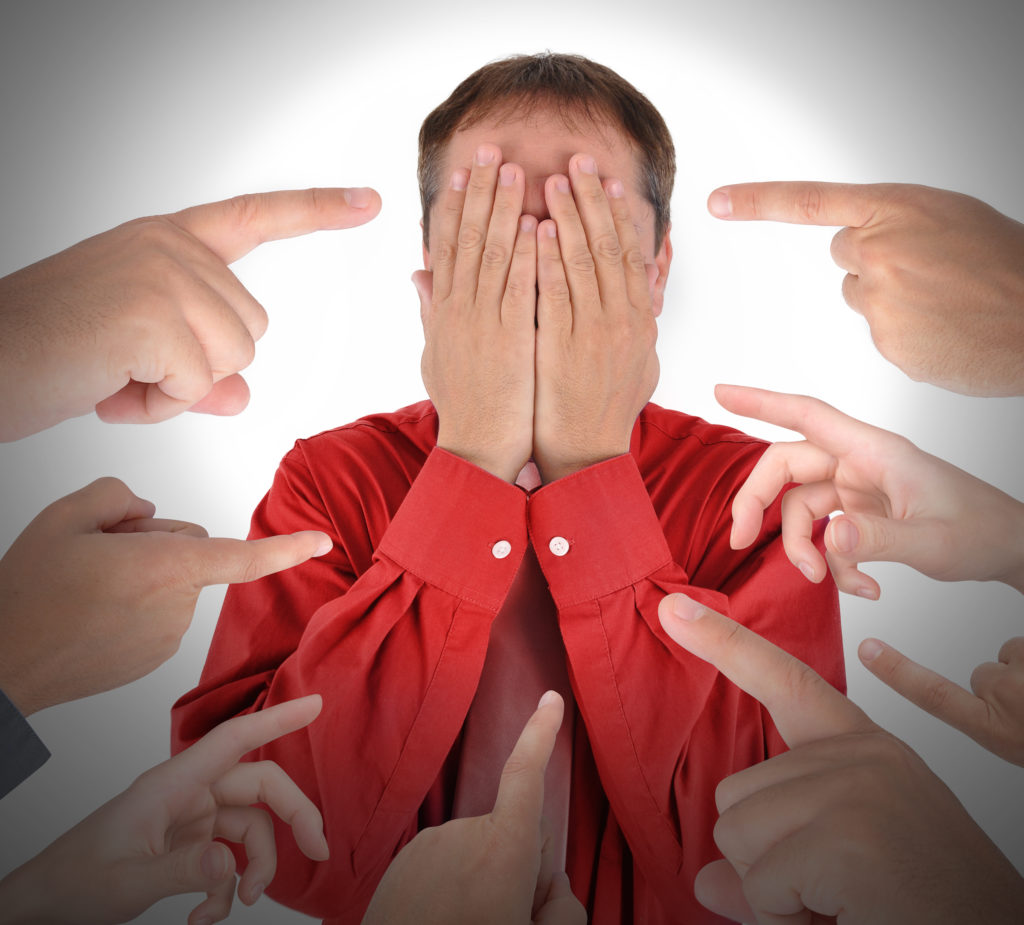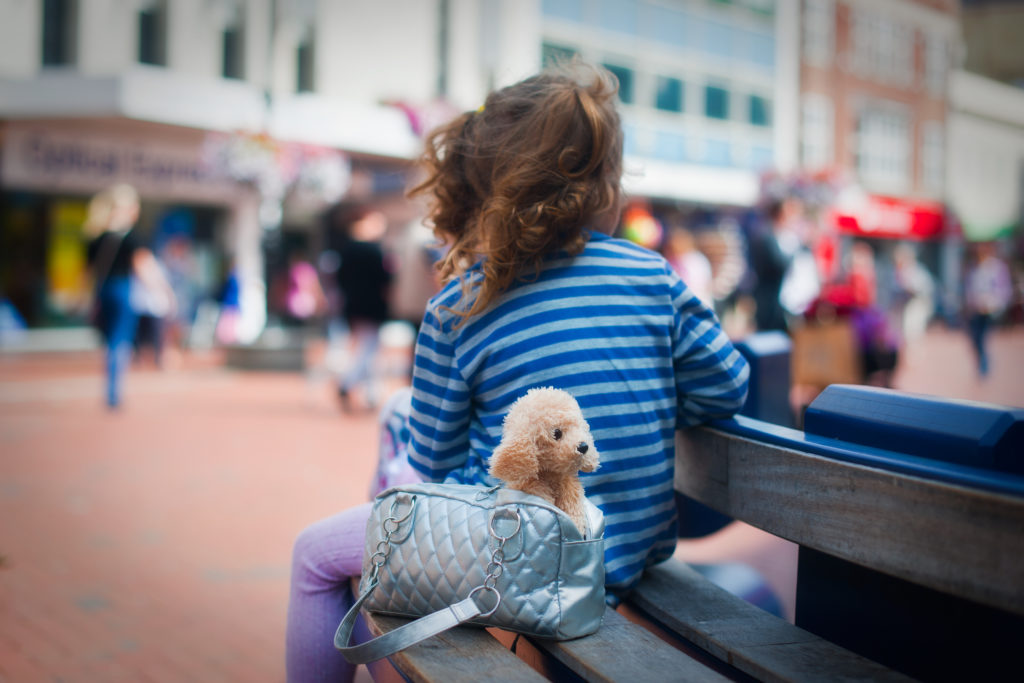Funny Names for Roles You Play in Kids Lives
Some families are comprised of roles that can serve a purpose, simply besides be dysfunctional. The more enmeshed the family fellow member is in the part, the harder it is to dissever from the role.
The cardinal to stepping out of a dysfunctional role is through awareness, acknowledgement, and consciously stepping back from the function.
Hither are some examples of 4 dysfunctional family unit roles:
one. The Hero

On the Outside
The hero, on the exterior, is perfect and is ever correct. This person is an over-achiever and tends to receive a high amount of praise and positive attending.
On the Within
On the inside, the Hero has an immense fear of failure and letting down the family by not living upward to the expectation to be perfect. The Hero often feels over-controlled and similar he or she is not free to make his/her ain decisions.
The Dysfunction
The Hero office becomes dysfunctional when it becomes dependent on success. Pressure mounts to always be successful and to be the face up of the family. Children heroes are pressured by family to excel in school, take honors classes, pursue higher pedagogy, and never to fail.
Achievement-Oriented Heroes
With some assistance, the Hero can learn assertive skills such as saying "no". The Hero tin learn that it is ok to make mistakes and fail. Instead of being dependent on success, the Hero can become accomplishment oriented. Accomplishment oriented individuals understand that some plans may fail first, and to try another plan to achieve goals instead of accepting failure and self-defeating thoughts.
2. The Scapegoat

The Scapegoat is the opposite of the Hero role, and is seen as the trouble of the family. The Scapegoat is also referred to every bit the "black sheep" of the family, and has a difficult time fitting in and relating to the other family members. His/her behavior is seen as bad and never good enough. The Scapegoat tends to be more impulsive and angry.
On the Inside
Although the Scapegoat may put up an angry touch to keep others away, on the inside the Scapegoat is filled with shame, hurt, and rejection. The Scapegoat has little motivation to succeed because he or she already feels like a failure and a loser.
The Dysfunction
When paired with a Hero of the family, the Scapegoat tin feel every bit if she or he is a sponge to blot all of the bad things the Hero cannot handle. For case, the Hero may feel better about him or herself when married to a Scapegoat, because it gives the Hero permission to offload all of the fears of rejection and failure onto the Scapegoat. The Scapegoat may experience as if he or she isn't all that bad considering the Hero is choosing to be partnered to them.
From Victim to Thriver
Someone in a scapegoat part, with some assist, can learn to be good and to feel good. He/she will learn to footstep back from black and white thinking ("I'm either all expert or all bad") and into a more than counterbalanced perspective of self. With this balanced thinking comes the ability to take appropriate risks and opportunities in order to achieve goals.
3. The Lost Child

The Lost Child refers to an individual in a family unit that is oftentimes ignored, tranquility, and seems/feels invisible. This person has a low sense of self, identity, and worth. Not much is expected of the Lost kid, considering this person is often non pushed to try hard or to succeed.
On the Exterior
The Lost Child tends to have frozen feelings resulting from feelings never receiving a sense of value. The Lost Child feels lonely and misunderstood. As an adult, the Lost Child tends to fill up voids with material items and turning inwards for hobbies such as art or writing. The Lost Child as well may have learning disabilities resulting from poor nurturance or lack of guidance equally a child.
The Dysfunction
The Lost Child tends to continue opinions to him or herself and rarely feels needed or as a contributor to the family. This tin lead to depression and in some cases suicide when the individual feels similar more of a burden to the family.
Soft-Spoken merely Wise
With some help, the Lost Child tin larn to have feelings and learn how to appropriately express emotions. The Lost Child tin be extremely valuable when solving problems considering he or she has learned to think things through internally and through listening before speaking. The Lost Child is very creative (thanks to those inward hobbies!) and often talented. With time, the Lost Child tin learn to feel continued to others and gain a healthy sense of self.
iv. The Clown or Mascot

The Clown/Mascot is just what it sounds like: funny, goofy, often immature, and does annihilation for a laugh. The Clown role is frequently frowned upon in school settings by teachers, and can either be popular with other children, or plant to be an annoyance.
On the Outside
The Clown/Mascot continuously hides pain with humor and feels inadequate. The Clown/Mascot is seldom taken seriously or respected. The family tin can sometimes promote this function in an individual as a style to avoid tough problems and be provided with comic relief.
The Dysfunction
As pain continues to build up and remain covered or avoided, the Clown/Mascot becomes more encumbered which can result in depression. The Clown/Mascot may feel pressured to always encompass up others' hurting as well by making others laugh or cheer up instead of working through issues. The Clown/Mascot tends to be a follower and allow others to dictate his/her life, fifty-fifty if not consciously.
The Respected Comedian
With help, the Clown/Mascot may larn believing skills to be able to tell others no to helping them cheer up if he/she chooses. The Clown/Mascot can accept and feel a range of emotions and use laughter in more functional and appropriate means. The Clown/Mascot can grow into a more than believing leader with responsibilities.
Whenever nosotros lock ourselves into 1 defining role, nosotros are bound to experience dysregulation. This is because we are all comprised of dissimilar roles (and fifty-fifty selves!). Which roles do yous serve?
Remember, the key to stepping out of a dysfunctional role is start recognizing that y'all may be in i.
Bank check in with yourself, make sure you give yourself permission to neglect, permission to succeed, and even permission to exist still.
Source: https://theplaytherapist.com/dysfunctional-family-roles/
0 Response to "Funny Names for Roles You Play in Kids Lives"
إرسال تعليق